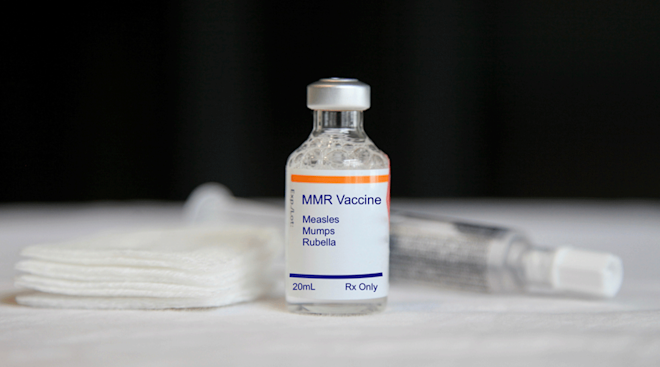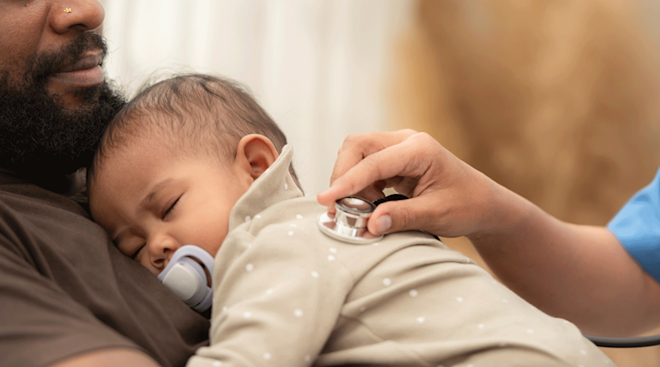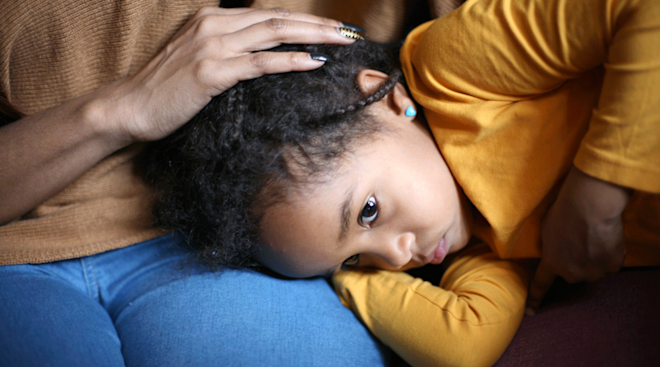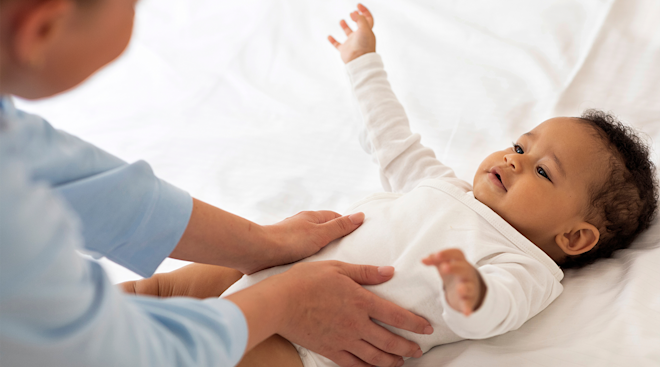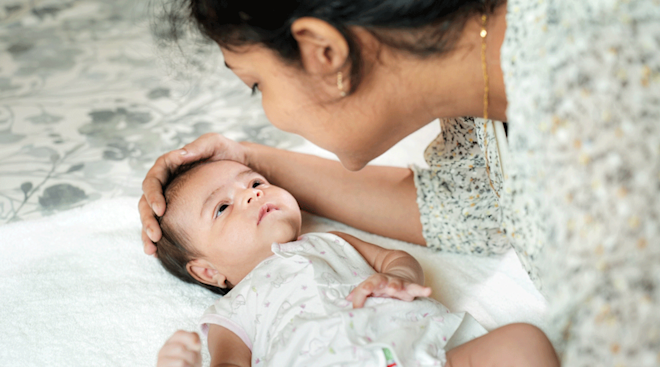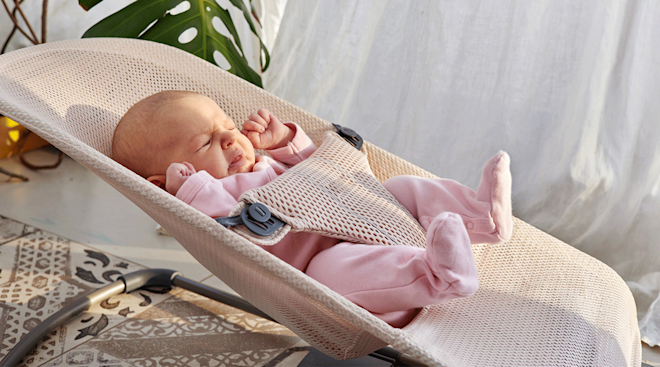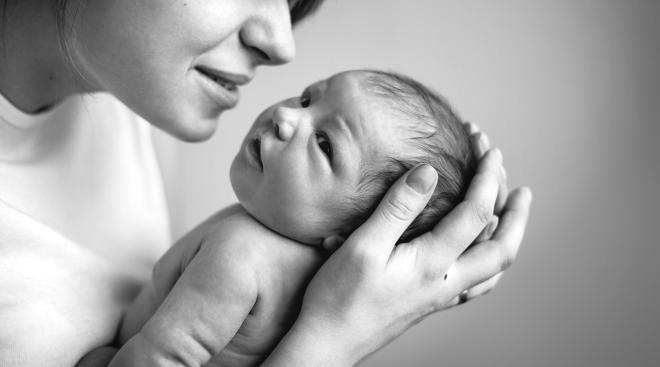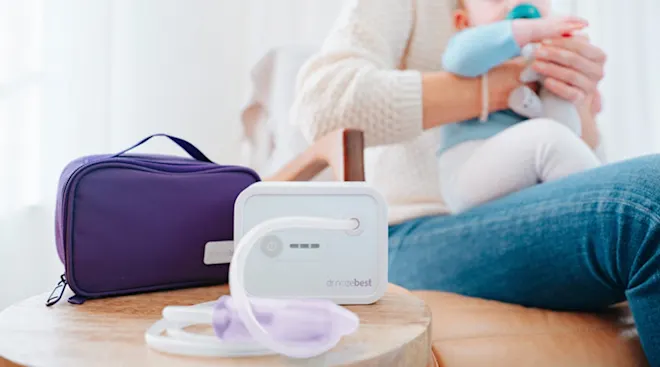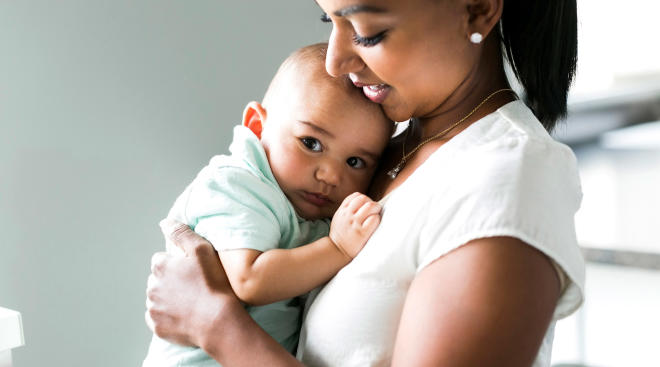What to Do When Baby Gets Sick
Millions of people do this whole parenting thing every day—but that doesn’t make it any less scary when you spot common signs that baby isn’t feeling well. “There’s a steep learning curve,” says Cheryl Wu, MD, a New York City-based pediatrician. “We’re not always around babies much before we have our own, and there’s a general anxiety that parents feel about their children’s well-being.” So what should you do when baby gets sick? Use this cheat sheet to help calm some of your worries and get baby feeling better fast.
They call it the common cold for a reason—chances are, your child is going to catch more than one cold within the first year. Luckily, handling a baby cold is usually totally manageable.
How to treat it: Steer clear of cold and cough medicines—they aren’t effective or safe for babies, says Alanna Levine, MD, a pediatrician at Orangetown Pediatric Associates in Tappan, New York. Instead, opt for easy at-home remedies. “Running a humidifier can be helpful, and so can using a bulb syringe to help remove the mucus,” Levine suggests. Above all, make sure baby stays hydrated.
What other moms do: “We get the vaporizer going, tilt the mattress, suck the snot out, use saline and do vapor baths.” —mamablase1
When to call the doctor: If baby is working harder to breathe—for example, her belly is going in and out very fast, you can see nasal flaring or there’s pulling at the chest—make the call.
Does your little one feel hot to the touch? A rectal temperature that’s higher than 100.4 degrees Fahrenheit is considered a fever for baby, Parikh says. (And yes, taking a rectal reading is best.)
How to treat it: Keep baby hydrated with breast milk or formula. Infant fever reducers like Infant Tylenol can be effective, but consult your pediatrician first to make sure you’re offering the correct dosage.
What other moms do: “For a low fever, a lukewarm bath helps. And then I give baby a massage with baby lotion. I also dim the lights and play relaxing music to help calm her as I wait for her fever to go down.” —Aubriana R.
When to call the doctor: If baby is under 3 months old and develops a fever, call your pediatrician right away. You’ll also want to consult your doctor if the fever has lasted for more than 24 hours or if baby is breathing slower or faster than normal, has other symptoms such as a cough or vomiting or is weak or limp.
At one point or another, baby is bound to throw up. As unpleasant as it is (for him and for you), it’s usually harmless and passes on its own.
How to treat it: Wait it out for now; if it just happens once or twice, things are probably okay. Once the vomiting subsides, offer frequent but small sips of liquid—breast milk or formula for young babies, or a tablespoon of water for babies over 6 months.
What other moms: do “My baby had a GI virus with no fever or other symptoms, so there really wasn’t much to do other than watch his hydration and snuggle him.” — Jenna D.
When to call the doctor: Pick up the phone if baby has a high fever and seems unwell, or if he vomits more than a few times. Also call if you see signs of dehydration, including dried lips or fewer wet diapers than normal. “Babies get dehydrated quickly,” Wu says. If baby’s vomit is greenish, yellowish or has blood, or if he can’t seem to keep anything down, he’ll need to see a doctor.
If baby develops a cough, it could be a sign of a cold—or that her body is trying to clear a nasal drip, phlegm, mucus or bits of food. Here’s what you can do to help her along.
How to treat it: Suction baby’s nose with the bulb syringe to get rid of any postnasal drip that could be causing the cough. Steam from the humidifier or a running shower can help thin mucus too. For babies over a year old, a teaspoon of honey can be a sweet way to soothe a cough.
What other moms do: “We use the NoseFrida nasal aspirator and get the humidifier going.” —Lelo2006
When to call the doctor: You’ll want to get your doctor on the line if you notice baby having any trouble breathing (signs: her rib cage shows when she breathes, she’s grunting or her nostrils flare), or if her lips turn a bluish color when she coughs. You should call anytime baby has a fever along with a cough.
Have you noticed frequent, watery stool in baby’s diaper? It’s probably due to a simple stomach bug and usually causes more of a mess than a medical concern. Sometimes, though, it’s a sign baby has a lactose intolerance or an infection. Here’s what you can do for a baby with diarrhea.
How to treat it: Give baby plenty of breast milk or formula to rehydrate him, then watch baby closely to make sure he’s improving, says Preeti Parikh, MD, assistant clinical professor of pediatrics at the Ichan School of Medicine at Mount Sinai in New York City.
What other moms do: “Our pediatrician had us switch formulas, and baby’s been great since.” —BlondieBia21
When to call the doctor: Get on the phone if there’s any blood or any mucus in baby’s poop, he has a high fever or has any signs of dehydration (mentioned above). If baby is dehydrated, he may need to receive IV fluids at the hospital.
Sometimes babies’ bodies just need a little time to work out the whole pooping process. A sign of true constipation? If baby has two or less bowel movements a week, and when she does poop, it comes out as hard little balls.
How to treat it: Be sure baby’s getting enough fluids. For babies 6 months and older, some doctors recommend giving a small amount of prune or apple juice, but ask your pediatrician first. Your doctor may also suggest a stool softener or suppository.
What other moms do: “We used glycerin suppositories a few times per our doctor. We also gave baby water—1 ounce three times per day between feedings. That only helped temporarily. The cure-all was mixing 1 ounce of prune juice with 1 ounce of water every other day as needed.” —KitKat307
When to call the doctor: If baby is breastfed and less than one month old, call your pediatrician as soon as you notice signs of constipation. It’s also worth a chat if baby is irritable and has a decreased appetite.
It’s a fact of parenting life: All babies cry. But sometimes those wails can seem excessive. Here are a few tricks you can try to help soothe your little one.
How to treat it: If baby is crying excessively, first look for a possible explanation. Baby could be hungry, tired or need a diaper change. Check for fever or even a hair tourniquet: “Hairs can get wrapped around baby’s fingers or toes, or even a boy’s penis,” Parikh says. Try different techniques to see what will calm baby’s cries: Holding, rocking and singing to baby may help, as could white noise, a warm bath, baby massage or a pacifier. Burp him and bicycle his legs to get rid of gas, in case that’s what’s making him uncomfortable. Is baby teething? Try a cool teething ring or pacifier.
What other moms do: “When my daughter is inconsolable, we swaddle her and walk her around with a pacifier in her mouth. Once she’s calm, we put her in her swing, still swaddled, and turn it on with white noise, and she’s out in less than five minutes.” —Kari M.
When to call the doctor: Phone the office if you’ve seemingly tried everything and baby is still uncontrollably crying, or if baby has other concerning symptoms. If baby is crying more than three hours per day, at least three days per week before she’s 3 months old, it’s likely colic.
It’s okay to call baby’s pediatrician anytime—don’t feel like you need to wait or that you’re being an alarmist. “New parents call my office more frequently than experienced ones do, and I encourage them to,” Levine says. “Parents shouldn’t be afraid to ask questions. What can be answered in a few short minutes can save hours of worry.” Here’s the info she’ll want to know:
• How old is baby? Something as simple as a cold in the first three months is worth a visit, since babies under 3 months are particularly vulnerable. And a fever in a newborn means a trip to the emergency room, if it’s outside of office hours.
• How is baby acting? When baby starts to seem off, keep track of how much he’s eating and sleeping, any noticeable difference in his mood and how often you need to change his diaper. If any of those four things are disrupted—for example, if baby is excessively sleepy, super-cranky or isn’t peeing as much as normal—it’s worth taking baby to the pediatrician’s office.
• What are you worried about? “If the answer is a variation of ‘I’m worried about the way he looks or breathes or acts,’ then that means a visit to the doctor or the ER,” Wu says. “If the answer is ‘I’m worried about his fever, but he looks okay to me,’ then he’s probably fine.” You may be new at this, but you do have instincts.
Once you’re sure it’s not an emergency, it’s okay to keep baby at home and do your best to ease her symptoms. Consult the doctor about anything you’re unsure of, from the right Tylenol dosage to whether to use a warm- or cool-mist humidifier. “It’s always a good idea to seek guidance from a professional,” Levine says.
Updated January 2018
Please note: The Bump and the materials and information it contains are not intended to, and do not constitute, medical or other health advice or diagnosis and should not be used as such. You should always consult with a qualified physician or health professional about your specific circumstances.
Plus, more from The Bump:
Navigate forward to interact with the calendar and select a date. Press the question mark key to get the keyboard shortcuts for changing dates.

































